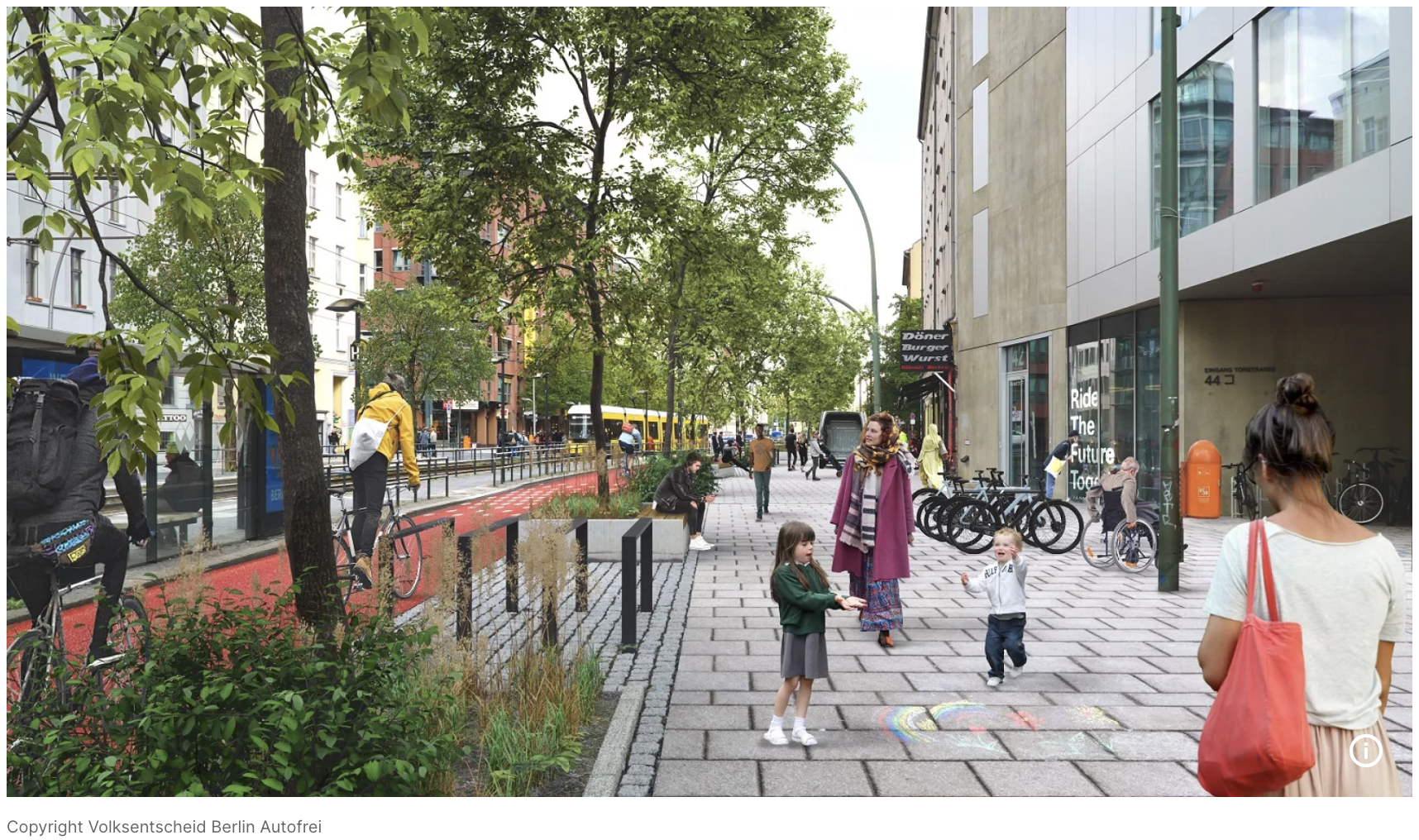

Opinion
By Anastasia Korae*
Cities worldwide are increasingly adopting pedestrian-friendly and bicycle-friendly policies, amid growing concerns over the climate crisis and the need to reduce air and noise pollution. These efforts deserve praise, especially during Mobility Week since not only do they address traffic congestion by developing mass transport systems but also create high-quality public spaces for walking and cycling. Despite the obvious benefits for people and the planet, removing cars from cities remains a subject of controversy in many places and even more so in Cyprus where car dependency is deeply embedded in our urban lifestyle and continues to be a critical factor in how we design cities, allocate land, and interact with our surroundings.
Urban design in Cyprus and the need for change
Streets in Cyprus are often unappealing and dangerous for pedestrians and cyclists due to the narrow or inexistent pavements and cycle paths, illegal car parking, exhaust fumes, noise, heavy traffic, or speeding cars, leaving little to no room for active traveling.
Most of us go about our daily lives in our cars, stuck in old habits accepting them as normal, using our streets the way we are used to without realising that it is us who made them this way. It is we who waste countless hours in traffic clogging road arteries and neighborhoods, it is us who tolerate not having the option to use an affordable and efficient bus system, it is we who have denied our right to roam carelessly in our streets, and it is us who ultimately settle for ugly, lifeless cities… Consequently, it is we who suffer the implications on our mental and physical health and it is we who don’t see the potential multiple benefits of a future urban transformation.
The good news is that it is also us who can make our cities a different way, by adopting a human-centred approach that places the role of mobility at the heart of improving the quality of life within cities, while also stimulating local economies.
A common myth and the economic reality
One of the most popular and long-standing myths about policies for fewer cars is that removing cars from city centers harms local businesses. Business owners often fear that fewer cars will translate to fewer customers. This may be true for out-of-town shopping centers that rely on peripheral roads for customers, but studies consistently show that, in urban environments, pedestrianization increases footfall, leading to higher retail sales.
Several studies prove that car-free cities are good for business:
● Madrid, Spain: A 2019 study on the "Madrid Central" low-emission zone found that sales increased during the Christmas period compared to the previous year.
● Oslo, Norway: Car traffic in the city center has been scaled back considerably since 2016 but no reduction in customers and/or turnover was experienced.
● Nancy, France: A study showed that retailers think that 77% of their customers come by car, whereas in reality, only 36% do. The study also showed that 76% of customers want a pedestrian zone, compared with only 52% of retailers.
● New York, US: After implementing the highly contested protected bike lanes along Ninth Avenue, retailers who had insisted that the lanes would be the death of their business instead saw a sales increase of 49%. Similarly, in the Bronx, along the route of the first of seven rapid bus lines created, sales shot up 71%.
● Los Angeles, US: Sales tax revenue rose by two-thirds after cycle lanes were built – 14% higher than unimproved areas.
● A 2018 study by Living Streets Scotland reviewed data from a host of cities and concluded that when pedestrians experience improvement footfall increases by anything from 20% to 35%.
● A 2016 study of over 100 cities showed that footfall increased on pedestrian-only streets resulting in retail sales also rising by around 49%.

Other studies show that pedestrians and cyclists may purchase fewer items in one trip, but tend to make more frequent trips than drivers. Moreover, in other countries, there is strong evidence to suggest that car-borne and bus-borne shoppers are of fairly similar importance to trade, contrary to many retailers’ perceptions.
Therefore, the evidence concludes that if people feel safe and free to move around, they visit more shops contributing to increased turnover. According to Arup, a collective of designers, engineers and consultants dedicated to sustainable development, “a dense and walkable urban network may facilitate the spread of small local shops and street markets, able to increase a variety of goods and services, independent retailing, local employment and start-up opportunities.”
Walkability as an opportunity for Cyprus
In the age of online shopping and malls, it seems that decision-makers in Cyprus have no option but to invest in walkability, i.e. the accessibility of amenities by foot. This can be done by upgrading and regenerating our built environment by limiting car use, improving accessibility for people of all ages or abilities, and increasing greenery and shade, so that local businesses can remain competitive and attractive, without relying exclusively on car-borne customers.
We are decades behind in the way we approach mobility, but we will need to start making up for lost time. We need intentional and comprehensive planning by multidisciplinary teams and subsequently careful implementation in phases to create the cities of the future. Plans for new transport networks need to be backed up by evidence, as so happens in more advanced countries that work to build social acceptance when implementing changes. If, in the end, we do succeed in providing reliable systems of sustainable transport, people will find ways to go where they need to go and beyond, including to their favorite shops.
*Anastasia Korae is the Board President of 'Friends of the Earth Cyprus'
































